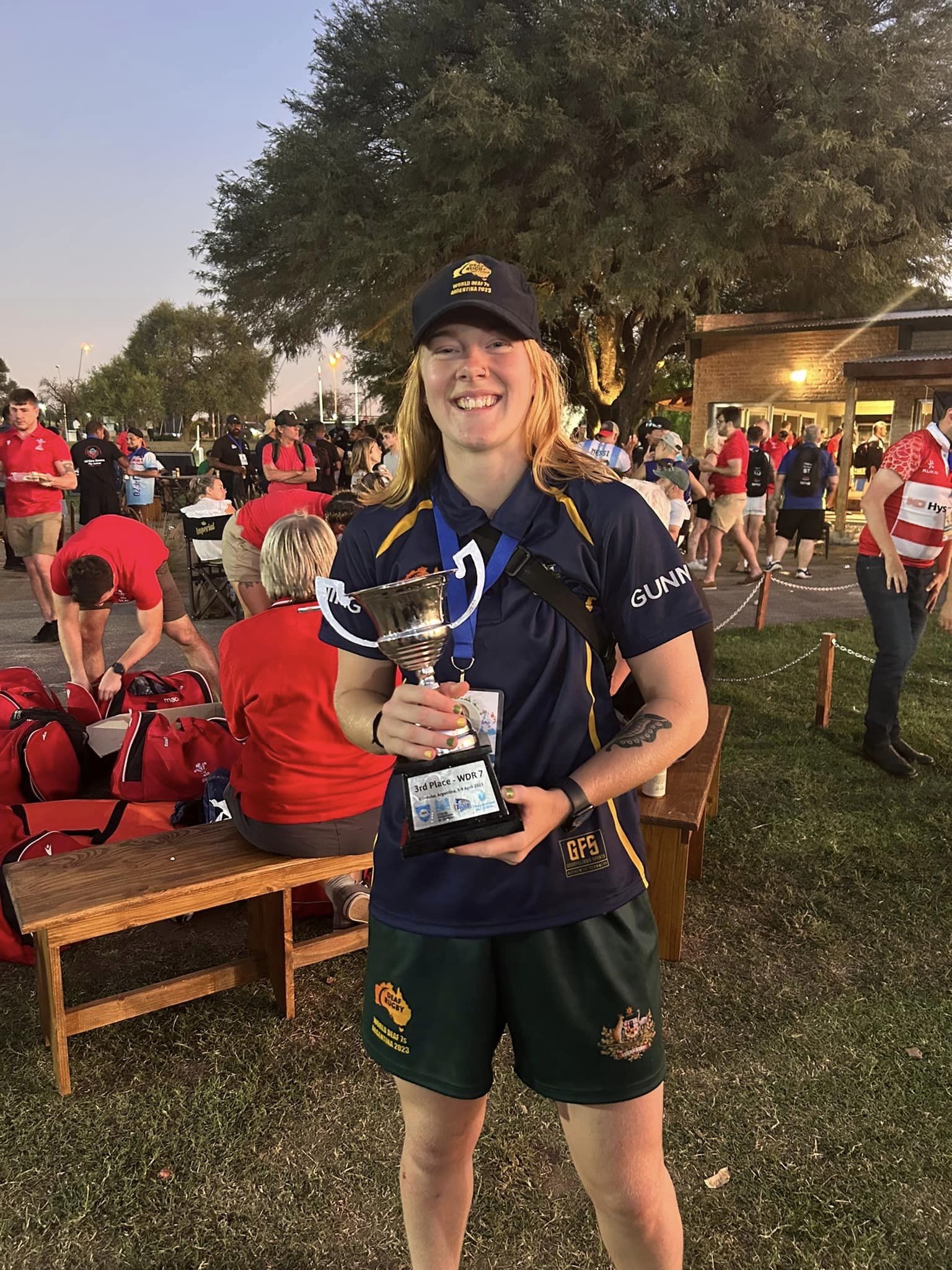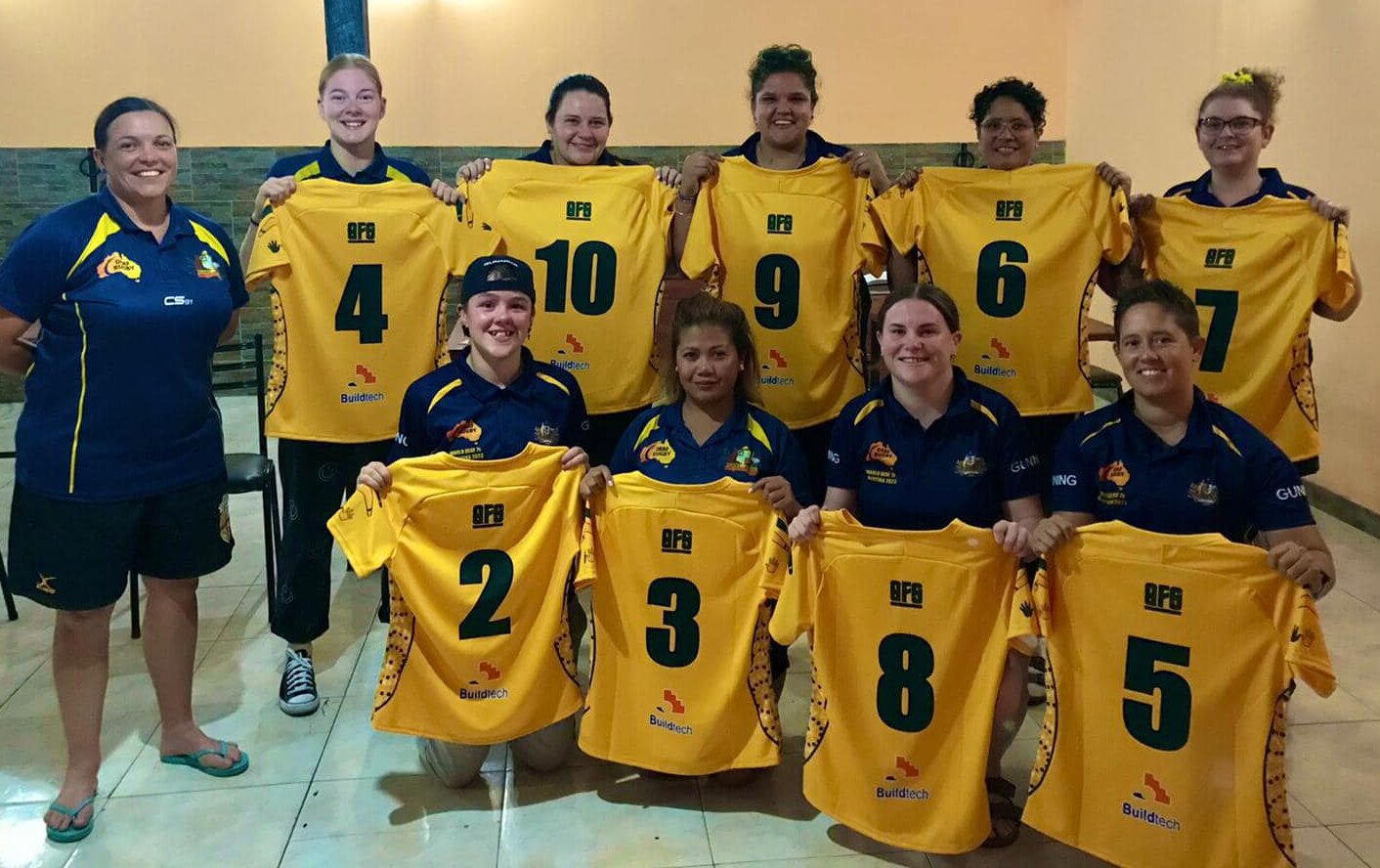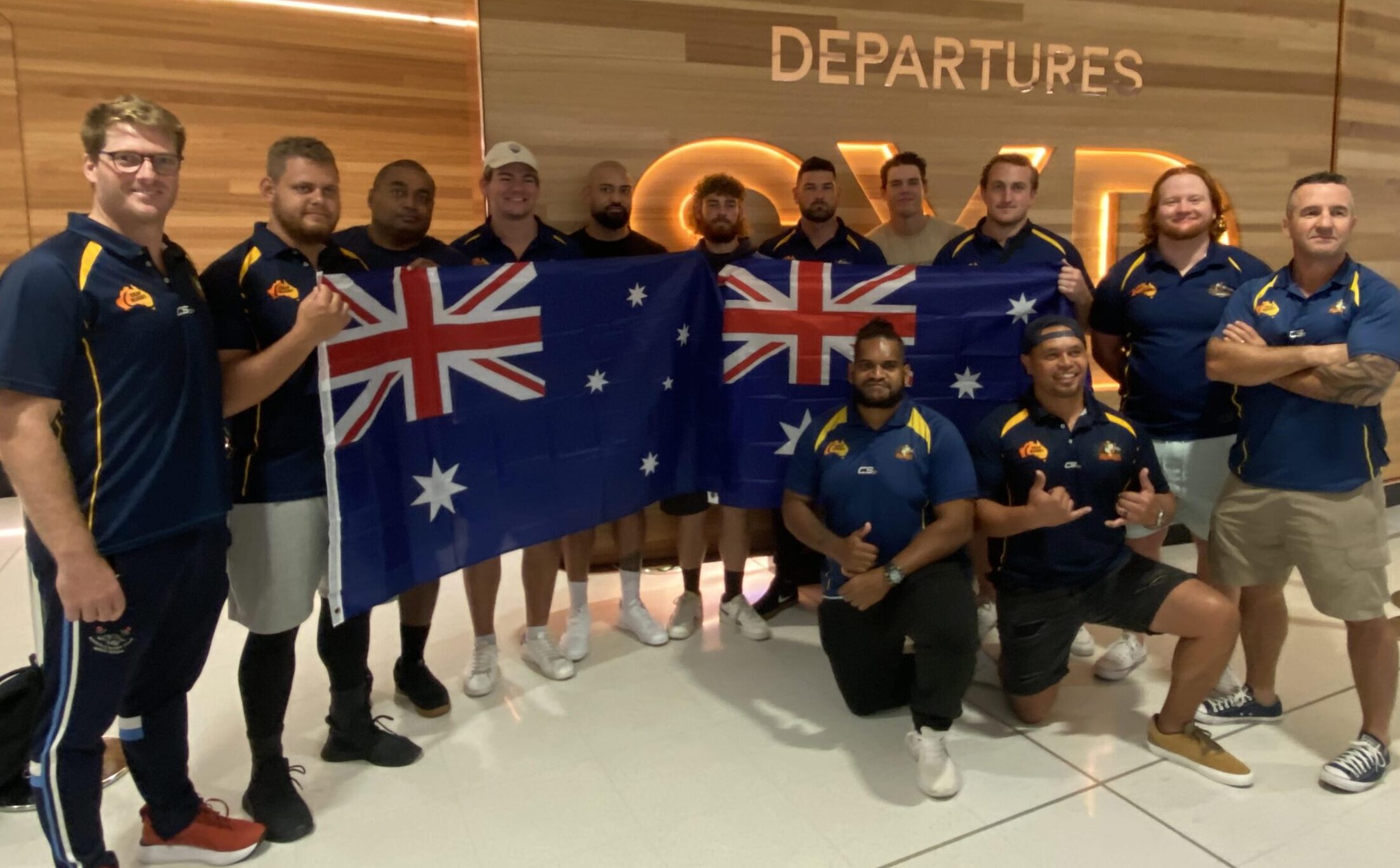
The Australian Deaf Rugby teams went to Córdoba in Argentina, last week to represent their nation at the 2023 Deaf Rugby 7s’ World Cup event. The Australian men’s team was placed second, whilst the women’s team was placed third overall.
When the women’s competition started playing on the world stage, people questioned the identity of one speedy player who wore jersey #4 from the Australian Women’s team. It was Jem Blackmore (they/them) who hails from Queensland. With a strong background in sports including Oztag, Jem would consistently look for room to improve their sporting performance.
But Jem gets their personal inspiration by looking up to the Matildas captain Samantha Kerr, known for being the first Australian ever to score a hat-trick at a World Cup. Like Kerr, Jem aspires to put on their best performance on the world stage also. “I also love just being able to do tricky skills and make an unbelievable try happen,” says Jem.
 Jem’s Deaf sister, Cynthia, applauded Jem’s recent success in Argentina. “Jemima had been training to increase their speed and power leading up to WDRU. During the games it is evident the hard work Jem had put in to compete in Argentina,” Cynthia said. “Jem kept a positive mindset and gave it their all during this competition. At the end of it all, Jem was awarded best and fairest player which was well earned after the determination and friendliness they’d shown.”
Jem’s Deaf sister, Cynthia, applauded Jem’s recent success in Argentina. “Jemima had been training to increase their speed and power leading up to WDRU. During the games it is evident the hard work Jem had put in to compete in Argentina,” Cynthia said. “Jem kept a positive mindset and gave it their all during this competition. At the end of it all, Jem was awarded best and fairest player which was well earned after the determination and friendliness they’d shown.”
Jem described their experience in the Argentina Tour as an amazing one. “I’ve had the chance to make so many connections. I couldn’t have predicted how it went, but it truly was a great experience. I can’t wait for the next WDR7s in 2025.”
One Aboriginal Deaf player from Cairns, Robert Dalton, known as ‘Bob’, met a friend in Canberra who introduced him to the world of Deaf sports. From there, Bob went from strength to strength, having been eyed by other deaf peers and invited to play Rugby at the 2012 Australian Deaf Games in Geelong. Eventually, Bob took the mainstream pathway by joining the Canberra Royals’ Rugby Club.
However, he faced an obstacle. With no access to information or communication in his local club at the time, Bob went home to study Rugby League on TV. When he returned to training, Bob quickly picked up on the performance requirements – soon after, Bob was upgraded from 3rd grade to 2nd grade.
Upon reflection of watching Bob playing in Argentina, Bob’s mother says her proudest moment was witnessing the monumental display of support given by other national teams as soon as the Australian men’s ran onto the field, getting ready to face the Welsh team in the last game. “A successful team is a group of many hands but of one mind,” Ms Dalton said.
The event was attended by seven national teams (men’s and women’s) and two teams consisting of players from a combination of different nations (they are known as Barbarians). The national teams that attended were Wales, Australia, England, South Africa, Japan, Fiji, Argentina, and players from the Barbarians team came from Argentina, Hong Kong, Wales, Brazil and Chile.
Media contact:
Lauren Townsend
info@deafsports.org.au


